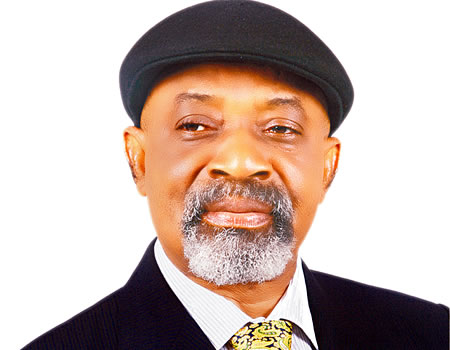
The Minister of Labour and Employment, Sen. Chris Ngige and the President of Nigeria Labour Congress (NLC), Comrade Ayuba Wabba, have addressed agitations by a section of the Labour Tripartite Stakeholders that a uniform Minimum Wage in the federation of Nigeria is at variance with the tenets of federalism.
Rivers State Governor Nyesom Wike, who was speaking the minds of some states governor at the Public Hearing on Minimum Wage for the South South Zone in Port Harcourt, Rivers State, said in a federation like Nigeria, states should be allowed to determine the salaries to pay workers in their respective states, based on each capacity; forgetting that same governors and other political office holders in these states collect same amount as salaries.
But in a swift response, Ngige and Wabba said the national minimum wage doesn’t mean that states across the federation will pay a uniform salary; adding that the minimum wage law is to set the minimum standard, below which no employer, either federal, state or local government and in private sector should pay; but can pay higher.
While clearing the air on the issue at the South-South Public Hearing, Ngige said Minimum Wage being a Federal law as contained in section 34 of the Constitution, “means a price floor below which workers may not yield their labour.”
The minister said: “Above that floor, any state can pay as higher as its resource capacity accommodates. The intendment of the minimum wage therefore is not about uniformity to hold back rich states or members of the private sector who have resources to pay higher from doing so but to set a national base below which the reward for labour in terms of wages would be inequable, indecent and slavish, hence illegal and unacceptable.
“The intendment is to set an irreducible minimum that can guarantee opportunities for workers to earn a fair income; security in the workplace and social protection for workers and their families,” Ngige said.
The Minister emphasised that the life of a worker and employers especially those in the private sector was intrinsically interwoven with the development of the nation, hence the importance the Federal government attached to interacting directly with workers all over the federation, so as to fully accommodate their aspirations for decent work in the new Minimum Wage.
Comrade Wabba, who spoke at the North Central Public Hearing held in Abuja said the
International Labour Organization (ILO) convention 131 and convention 26 prescribed minimum wage so that in the society, the government can protect the most vulnerable workers from exploitation.
The NLC President said: “The minimum wage means the minimum below which no employer of Labour should pay. Even the most capitalist country in the world, the United States has a minimum wage, but some states pay higher.
“The idea is to protect the most vulnerable worker which cut across both the public and private sector. That is the context which we must look. I have heard the argument that the call for minimum wage is trying to bring about an equal wage across the states of the federation. That is not true. When we signed the minimum wage in 2011, some states offered to pay more than N18,000. What we are saying is that you need to have a minimum, while across the country, you can pay higher. This also applies to the private sector.
“I have heard people talk about true federalism and I have checked and discovered that there is nothing like true federalism. I have checked all the vocabulary in political science and discovered that what you have is federalism and not true federalism. What the United States of America practice is federalism and in federalism, you need to protect the most vulnerable group from exploitation.
“If you say states should fix their own salaries, what about the private sector? What that means is that there will be exploitation. What we are saying is fix the minimum and not the maximum. We must protect the most vulnerable group in our society.”





